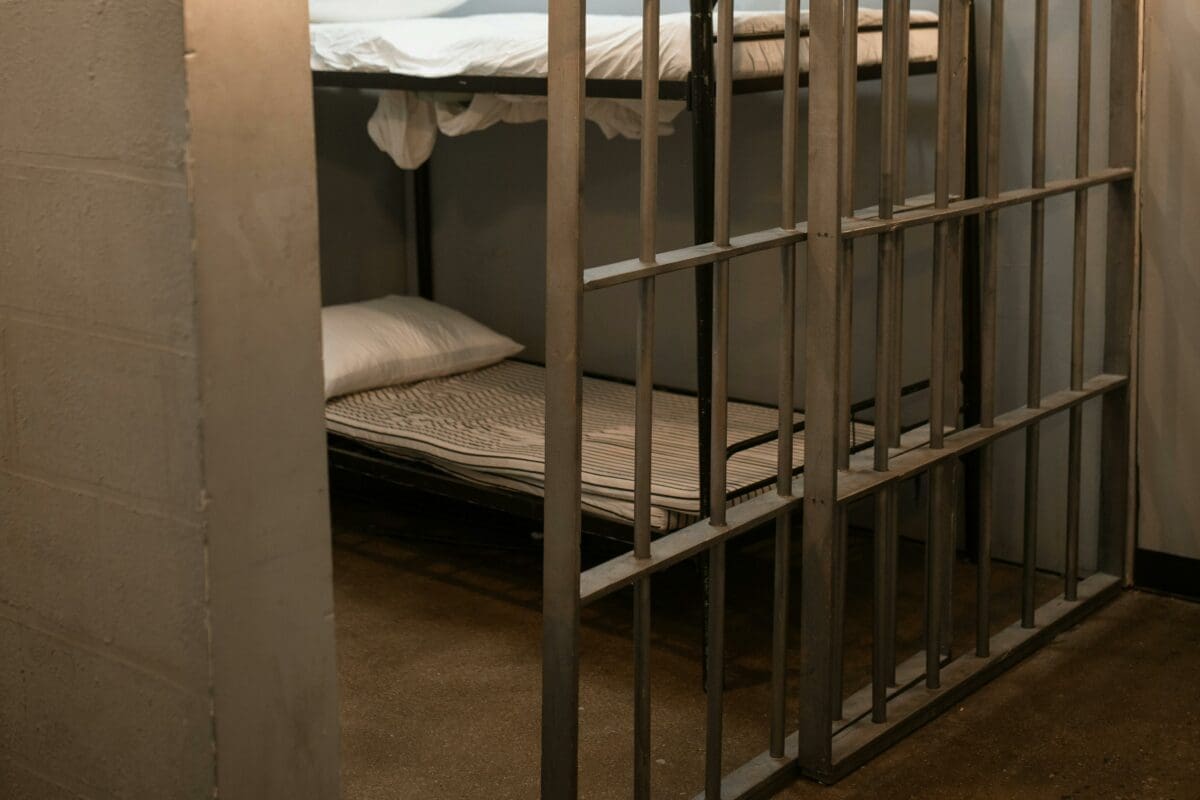

Two bills would officially prohibit the death penalty in Delaware. It’s been banned since a 2016 state Court decision. Photo by RDNE Stock project/Pexels
Two bills moving through the General Assembly officially will ban the death penalty in Delaware.
Both are sponsored by Sen. Sean Lynn, D-Dover.
The state Supreme Court in 2016 ruled that Delaware’s death penalty was unconstitutional and effectively banned it but state laws are still on the books.
House Bill 70 would eliminate the death penalty. Instead, it would establish a life sentence without probation, parole or other reductions for anyone 18 or older convicted of first-degree murder.
HIs House Bill 301 would start the process to remove the death penalty from the state Constitution.
That bill must be passed by ⅔ of the Senate and House twice – first in one session of the General Assembly and again in the next session of the assembly. The governor’s approval is not necessary.
The 52rd session is running now. The 53th starts in January.
“Before us is a bill that I think goes to the very essence of justice,” Lynn (D-Dover) told the House Judiciary Committee Wednesday. It passed there with no opposition and goes to the full House for a vote.
House Bill 301, which would amend the constitution, passed in the House Administration Committee.
Former correction officer Robert O’Mast, a member of the execution team at Delaware Correctional Center in Wilmington, spoke against the bills at both committee meetings Wednesday.
He pointed to James “Red Dog” Allen, a mob member known to have killed approximately 50 people, who was executed under O’Mast’s tenure.
“He promised us correction officers he would kill one of us,” O’Mast said. “And he was hoping it would be a female.
“All he saw was blood in his eyes. He had no interest in rehabilitating himself. That’s why we need the death penalty.”
Death penalty court decision
The Supreme Court decision in 2016 came in Rauf v. State, when the court ruled the capital defendants’ Sixth Amendment right to a jury trial had been violated.
Then, a judge, rather than a jury, determined whether the prosecution proved all facts necessary to impose a death sentence.
Under the Sixth Amendment, it must be a jury that unanimously and beyond reasonable doubt decides the validity of facts, and whether those facts are aggravating (reasons of death) or mitigating (reasons for life) circumstances, the court said.
Delaware still has a death penalty statute, even though it can’t be imposed.
Lynn’s bills would prevent a future General Assembly from reimposing it without jumping through major hurdles.
He cited some facts about the death penalty he described as “sobering”:
- For every eight people executed in the United States, one is exonerated;
In 2022, the countries with the largest amount of executions were China, Iran, Saudi Arabia, Egypt, the United States and Iran;
- Prior to 2016, Delaware had the third highest rate of executions in the nation.
One reason the death penalty is flawed, he said, is race.
As of 2012 in Delaware, black defendants who kill white victims were six times more likely to receive the death penalty than black defendants who kill black victims.
“Moreover, black defendants who kill white victims are more than three times as likely to be sentenced to death than white defendants who killed white victims,” Lynn said.
“It’s simply unconstitutional and inhumane to consider and continue this practice,” Lynn said.
The Eighth Amendment to the United States Constitution states explicitly: “Excessive bail shall not be required, nor excessive fines imposed, nor cruel and unusual punishments inflicted.”
Delaware’s Constitution goes one step further, Lynn said.
“Section 11 of the Delaware constitution says excessive bail shall not be required, nor excessive fines imposed, nor punishments inflicted, and in the construction of jails a proper regard shall be had to the health of persons.”
Coroners in Delaware declare the cause of death listed for those executed by the state as “homicide.”
Lynn said innocence is another major flaw when it comes to the ethicality of executions.
“Once you’ve executed an innocent person, there’s no fixing that mistake,” Lynn said.
IN THE NEWS: Here’s what happens now in districts what passed referendums
The death penalty is expensive, another underlying reason cited by Lynn.
Capital trials cost more than non-capital trials because of higher costs for prosecution and defense lawyers, time-consuming pre-trial investigations, the jury selection process, enhanced security requirements, longer trials, solitary confinement and unnecessary appeals to ensure fairness, Lynn said.
According to an economic analysis of 15 death penalty states from 2001-2017, cases seeking the death penalty cost an additional $700,000.
“One of the popular misconceptions about the death penalty is that it acts as a deterrent,” Lynn said, “that if faced with the possibility of being executed by the state, a person won’t commit a crime. That’s a complete fallacy.”
A report by the National Research Council titled “Deterrence and the Death Penalty” stated studies claiming that death penalties lower murder rates are fundamentally flawed.
“More importantly, law enforcement officers are actually safer in states that do not have the death penalty,” Lynn said.
He pointed out research that found the states with the highest rates of police killed highest were disproportionately death penalty states.
In a 2015 poll by the Delaware Center for Justice, 64% of Delawareans oppose the death penalty with an alternative of life imprisonment, compared to only 30% who continue to support the death penalty.
“It’s well past time that we’ve had this bill end…the Delaware death penalty,” Lynn concluded.
Rep. Peter Schwartzkopf, D-Rehoboth Beach, said in the Judiciary Committee that he does not oppose the death penalty in extreme cases. He voted yes, however, after speaking with Lynn prior to Wednesday’s meeting.
“I will support and vote for it to get out of committee because I think it deserves a vote on the floor,” Schwartzopf said.
Share this Post








